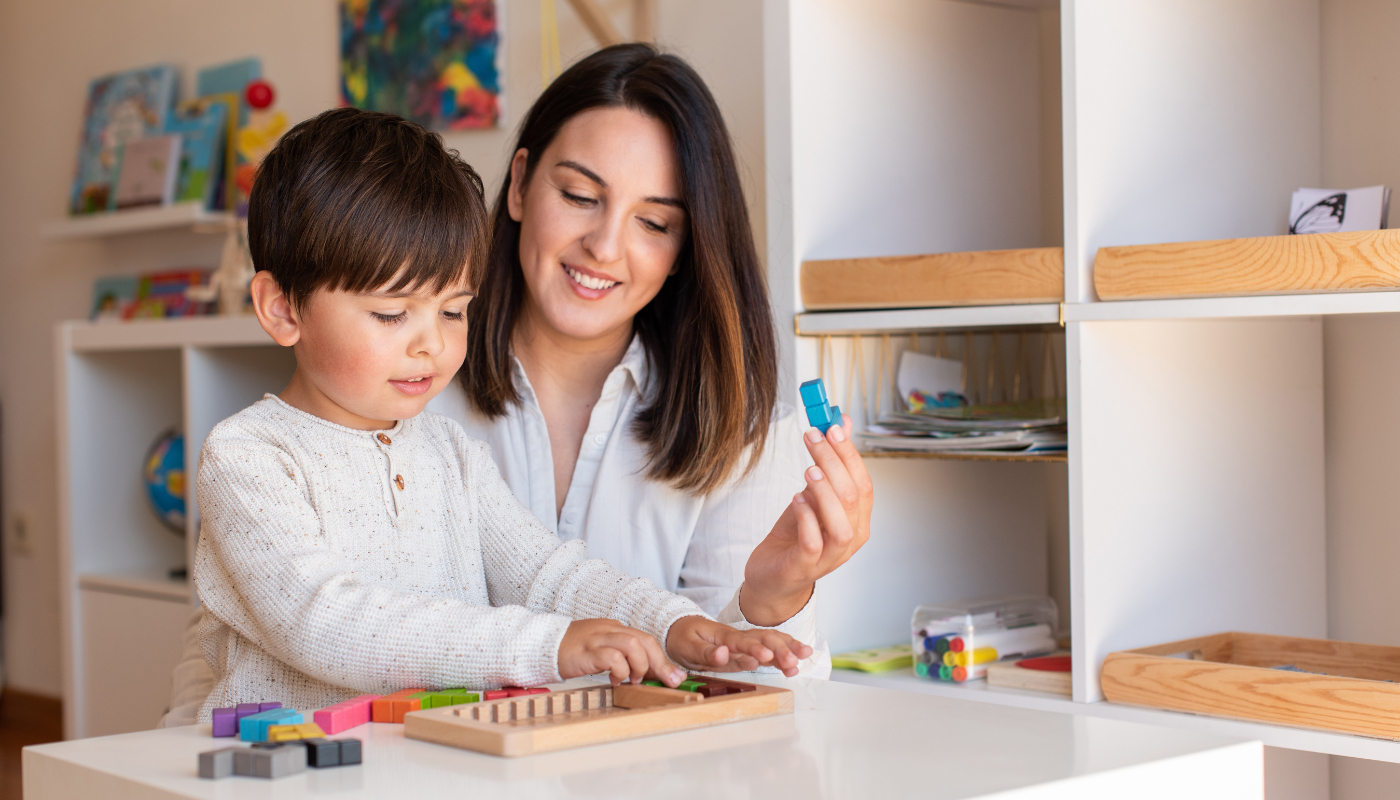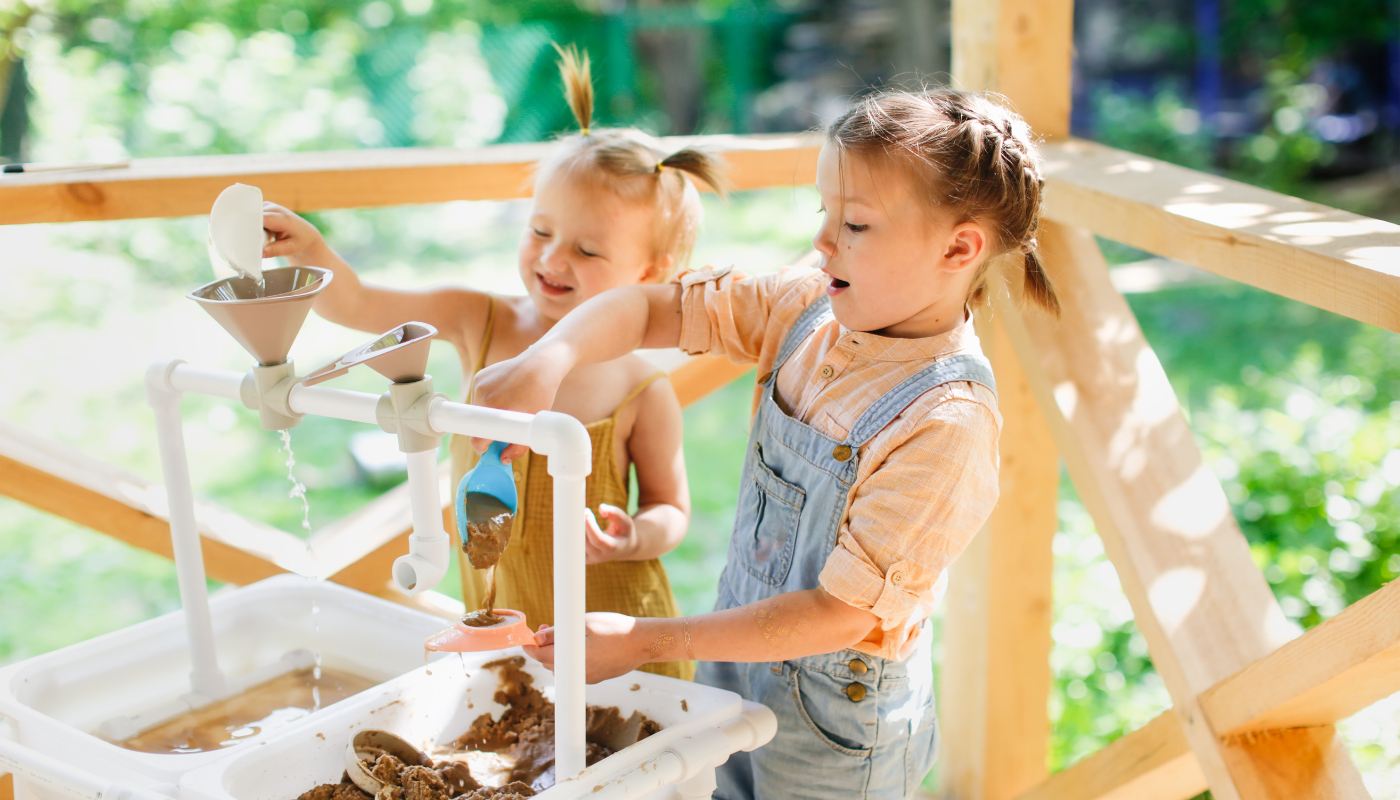Montessori Method: what it is and how to apply it
Montessori Method: learn how this educational methodology helps children develop cognitive, social and emotional skills effectively.
child care
Share

Montessori pedagogy is an educational approach promoted by the Italian educator Maria Montessori. The system is innovative and far from traditional methods, proposing to stimulate children's proactivity during their development both in schools and at home. You may be wondering, what does the Montessori method consist of, and how does it differ from other educational techniques?
What is the Montessori method?
The Montessori method focuses on establishing a one-to-one relationship with the youngest children, as opposed to the position of authority over children that adults tend to have in traditional educational systems. In this sense, Montessori education establishes a mutual learning that is framed horizontally. According to this methodology, the space must be safe and orderly to enhance the child's capacity for exploration and discovery, who must also have the freedom to develop and learn at their own pace.
The Montessori method can be implemented as a whole and in its entirety or introduced little by little in more traditional educational settings. Thus, this pedagogical method can also enrich other educational practices. Moreover, current scientific research continues to validate this educational method and all its benefits on a daily basis.
How to apply the Montessori method at home?
If you are wondering how to apply the Montessori method at home, there are activities that can be adapted to the home that can stimulate the curiosity, creativity and learning ability of each child. The following are some basics:
- Freedom from obstacles and adaptable furniture. For the child to be able to move freely, the environment must be free of obstacles and the furniture must be adapted to the height of the child. Movement is very important in this sense, as it helps learning and improves the ability to retain concepts. The use of the hands is also a magnificent input channel for information to the brain.
- Free choice. The child's personal decisions are relevant and guide their learning. The child should be the one to choose the activity they want to undertake from the options presented to them, as it fosters their independence. They learn by doing things by themself.
- Safety, order and hygiene. The Montessori method is also based on respect and care for the world around the child. To reinforce these values, the child's environment must be safe, clean, tidy and bright. This type of space is also conducive to the child's research and learning.
- Reading as a learning tool. Reading is essential for children. The difference is that, under this methodology, the selected children's books and stories are not based on fantasy stories, but propose to focus on real issues, with which the child can identify.
- Protagonism of the senses. The senses are crucial for learning about the world, so the child should be encouraged to experiment with objects and materials that help them develop them. The so-called ‘sensory periods’, also called ‘learning windows’, are stages in which the child shows a special interest or a particular enthusiasm for a certain area. There are specific Montessori materials, such as the sensory panel, that can be used.
- The role of the adult: a guide. Montessori education, as we have already mentioned, seeks equality between adults and children. That is why during the learning process the adult is a mere guide who, from humility, respect and observation, participates in the game. It’s essential to pay attention to the interests, abilities and needs of the child to facilitate their needs.
- Outdoor activities. Children enjoy nature very much, so open spaces are ideal for expanding their learning environment and allowing them to observe and discover other places. The freedom to investigate, experiment, ask questions and find answers for themselves is crucial to the Montessori method.
- Encourage collaboration. The child also learns to work in a team, to share and to respect others. In this sense, it can be useful to plan group activities or cooperative games.

Benefits of Montessori pedagogy
The benefits of Montessori education are many and varied. It offers a fascinating approach to the learning process of children:
- Happy, joyful environments in which respect is fostered to help children grow and learn in a healthy way.
- In Montessori pedagogy, love for nature, care for the environment, humility and order are fundamental values, and they are transferred to the little ones.
- It’s the child who freely chooses their own pace and does what they need to do, reinforcing independence and autonomy.
- Experiencing, exploring and observing the environment makes children more proactive than in traditional methods.
- The advantages of this education also reach the adult, who develops other social skills and learns to educate from a humbler perspective.






